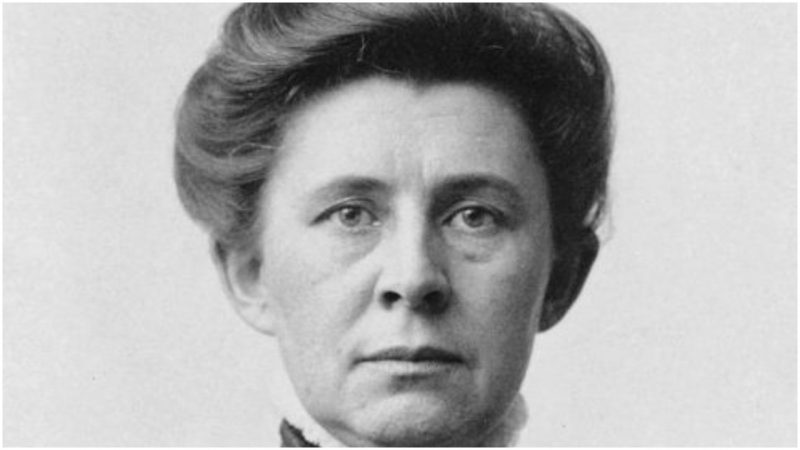The booming years of the Progressive Era around the beginning of the 19th century paved the way for new investigative methods in the US.There have been many newspaper reforms throughout the era, as journalism began to flourish in more transparent coverage.
McClure’s Magazine paved the way for this new transparent reportage, uncovering many sensationalistic scandals and shocking news that were of great importance to the public. The McClure’s Magazine ran from 1893 to 1911 and had competitive newspapers like The Saturday Evening Post and Collier’s.The illustrated magazine was founded in 1893 by S. S. McClure and J. S. Phillips, both literary intellectuals, who firmly believed in media transparency and truth. The magazine shaped the moral compass of the century.
This era was certainly regarded as the golden age of muckraking, as they advocated greater societal reform and justice for the workers. The pen is undoubtedly mightier than the sword, with journalism being more powerful than ever.
Publishing political articles containing any notion of scandalous political exposure had a greater impact than complaining about administrative abuse or corruption to the Congress itself. The muckrakers, a brave company of reporters, had a sole purpose of exposing injustice and abnormalities. No US institution was spared.
Apparently, the term ‘muckraker’ has its origin’s from John Bunyan’s classic Pilgrim’s Progress. It referred to a man with a muck-rake which rejects spiritual salvation and always keeps his eyes focused on the rake and the ground. But, it was President Theodore Roosevelt who mentioned this term in one of his speeches, instantly popularizing it.
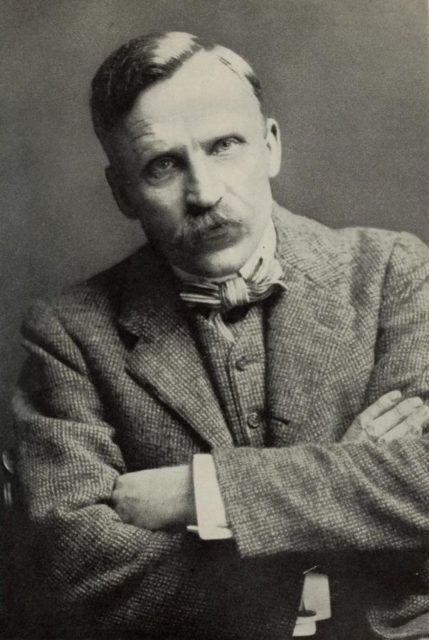
Although being very supportive of the muckraker’s cause and sheer truthfulness of this new journalism, Roosevelt was displeased with some of the muckraker’s harsh criticism. He noted their relentless attacks on corporations and institutions: “the men with the muck rakes are often indispensable to the well-being of society; but only if they know when to stop raking the muck…”
McClure’s boasted editors, cartoonists, columnists, and very prominent writers as distinguished contributors. Robert Louis Stevenson, Mark Twain, J. M. Barrie, Rudyard Kipling, Arthur Conan Doyle, Jack London, Herminie T. Kavanagh, and many more.
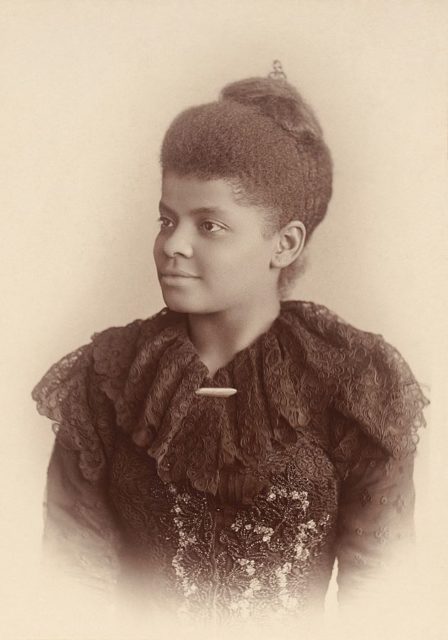
McClure’s featured rich literary content and also, the soon-to-be famous writers had the opportunity to be published. However, the scandalous political content was more emphasized, since the public demanded more information and closure of the industry and the political scene.
In general, people were unhappy and malcontent because of the chaos of the industrial age.
The dangerous working standards and unsafe conditions sparked an outrage among the hard-working public, not to mention corrupt political figures and scandals.
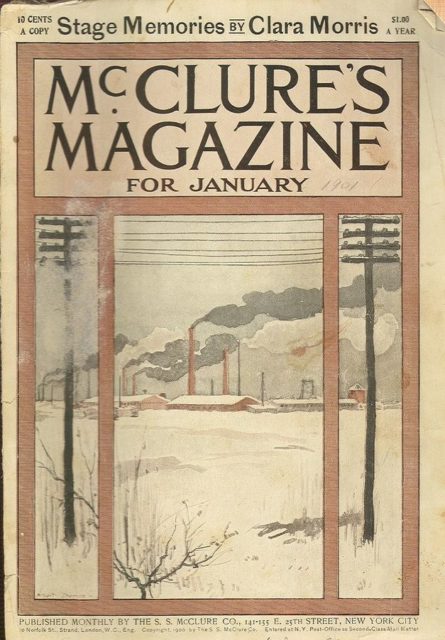
Throughout its run from 1893 to 1911, there have been many articles, columns, and reportages that exposed and attacked various corporations. Many clandestine employment agencies, unfair worker treatment, child labor advocating companies, as well as prostitution rings, were revealed to the public. All thanks to the hard-working muckraking journalists in McClure’s Magazine.
Active writers, journalists, and columnists such as Lincoln Steffens, Ida Tarbell, Upton Sinclair, and Ray Stannard Baker, uncovered various horrible acts of unlawful employment conduct and injustice. It varied from meat-packing plant scandals, improper worker treatment, advocation of child labor, corrupted mayors and political key figures, shady urban contracts, and personal clandestine land deals between government officials.
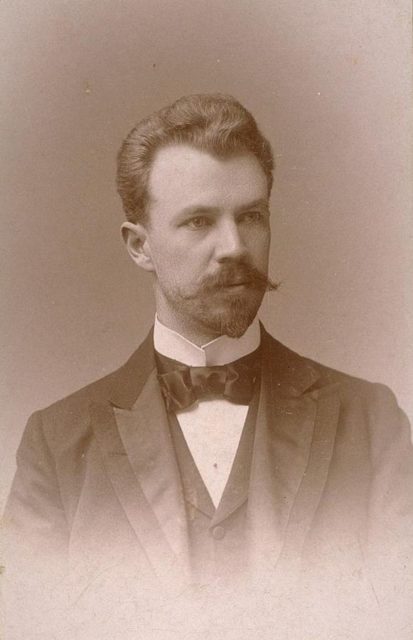
One of the more important scandalous coverages from the magazine was Ida Tarbell’s series of articles about Standard Oil in 1902. It lasted about 19 series until 1904 when she published them as ‘The History of the Standard Oil Co.’.
She took the bold liberty of exposing several misconducts and criminal abuse in the Standard Oil Company, the monopoly giant.
Tarbell was regarded as one of the leading muckrakers who pioneered investigative journalism, along with Julius Chambers, and Lincoln Steffens. She also wrote many other notable magazine series and biographies, including several works on President Abraham Lincoln, revealing his early life.
She began her research about Standard Oil in 1900 with the help of an assistant, John Siddal. She wrote the articles and reports which were directly gathered from interviewing Standard Oil’s most powerful magnate, Henry H. Rogers himself. Tarbell interviewed him in 1902.
Before Tarbell’s findings, another muckraker journalist, Henry Lloyd, managed to find out about the company’s corrupted monopoly.
He wrote The Story of a Great Monopoly, published in the March 1881. Tarbell later went on to widen the case with her findings for the South Improvement Company scheme and succeeded in popularizing it, despite Lloyd’s findings.
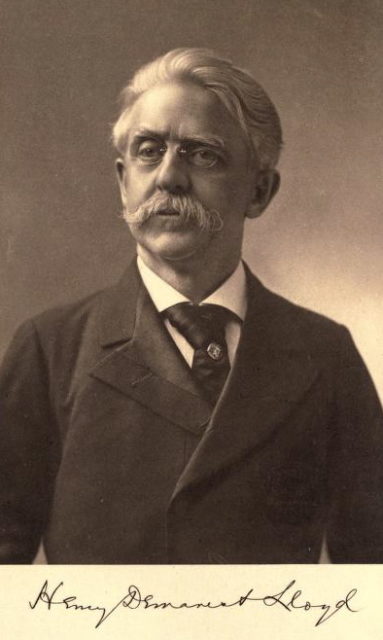
During the interview, Tarbell managed to ‘squeeze-out’ critical information from Rogers. Apparently, she found out that Standard Oil deceitfully rigged railroad prices and disrupting smaller businesses to clean up the competition. This is regarding the South Improvement Railroad Company scheme from 1872 and Rockefeller’s effort to gain more control of oil and natural gas.
At first, the oblivious oil mogul thought that the interview concerning documents, statistics, and controversial cases about his business was purely complementary, or of praising nature. The magnate’s simple mistake of not suspecting the reporter’s intention had cost the entire company.
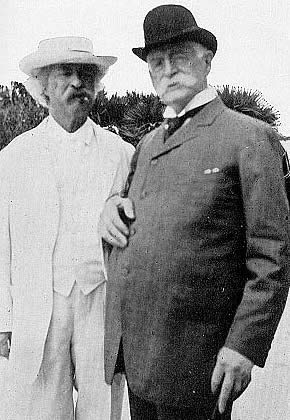
Tarbell’s motives for unleashing the fury on Standard Oil may also have been personal because her father was in the oil business himself. He was driven out of business because of Standard Oil’s shady South Improvement Company railroad scheme.
She addressed the slimy business tactics conducted by the leaders of the Standard Oil Company. Unbeknownst to many, they engaged in illegal transportation with the railroad companies to undercut the prices of the many competing oil businesses.
Many smaller oil companies went out of business due to this devious plan. She depicted John D. Rockefeller as a deceptive, money-grubbing, lying, thief who monopolized the oil trade.
Tarbell later got her series published in a book in 1904 with the help of Lincoln Steffens and Ray Stannard Baker. She managed to emphasize the worker abuse and cutthroat business practices behind the highly successful corporation. This feat would pave the way for a new era of investigative journalism, further popularizing muckraking.
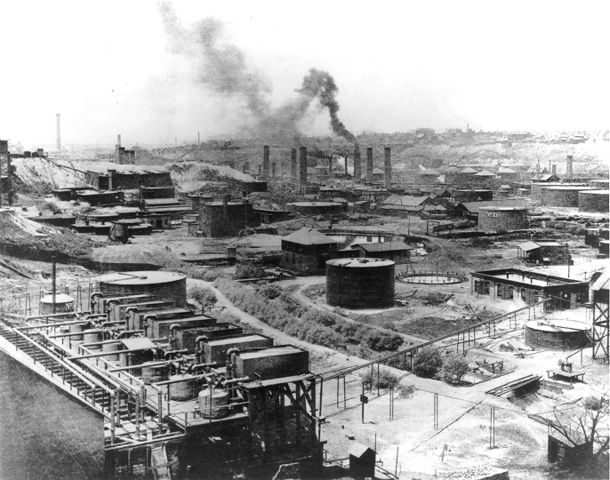
The book sparked a massive outrage, spotlighted Rockefeller’s greed, and fueled the public’s anger. It also raised public awareness of money-hungry companies which seek to monopolize as well.
After the book had been published, she wrote a profile about Rockefeller, perhaps the very first CEO profile ever, despite never meeting him personally.
She investigated Standard Oil and Rockefeller by using documents, hundreds of thousands of pages scattered throughout the nation, and then amplified her findings through interviews with the corporation’s executives and competitors, government regulators, and academic experts.
The massive outrage from Tarbell’s findings led to the eventual demise of Standard Oil in 1911. The United States Supreme Court immediately ruled it out as an illegal monopoly which violated the Sherman Antitrust Act. To make matters worse, the workers uprising was spiced up with extremely negative publicity coming from various media.
People throughout the country praised Tarbell’s heroic feat of journalism, noting her sheer will and selflessness. In addition to Tarbell’s bask in glory, several newspapers applauded the calm, rational, and factual way the book was written.
A review from the Economic Journal newspaper noted: “it is difficult to write about Miss Tarbell’s remarkable achievement without using language approaching the edge of hyperbole. So careful is she in her facts, so sane in her judgments that she seems to have reached the high-watermark of industrial history.”
Besides the major publishing success, McClure’s Magazine came to a bitter end. In 1906, following fired-up quarrels among the journalists at McClure’s, one part decided to form a new magazine, The American Magazine.
The magazine lost its frequent readers. It was eventually sold to creditors in 1911. Nevertheless, the magazine helped many writers to become world-renown literary giants.
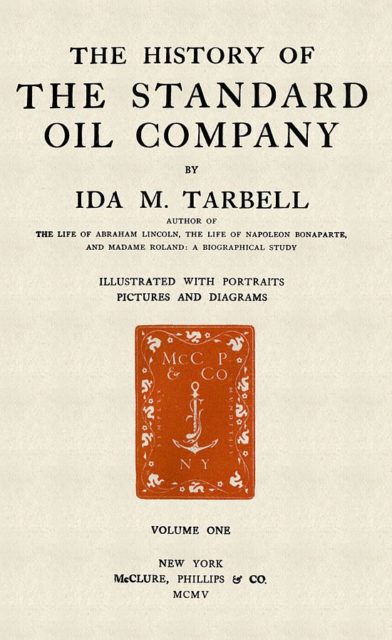
As for Tarbell, she managed to topple the oil giant, besmirch the name of John D. Rockefeller, and cause the biggest commotion since President McKinley’s assassination in 1901.
Undoubtedly, Tarbell will be remembered for her extremely dangerous journalistic feat.
